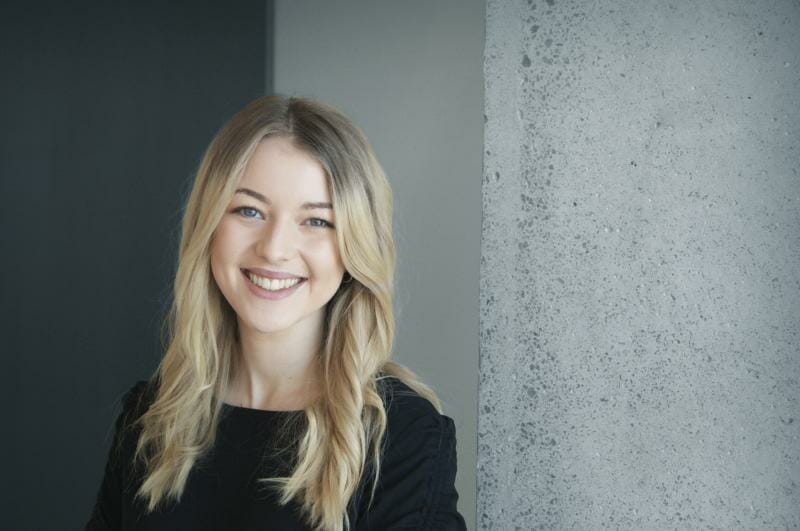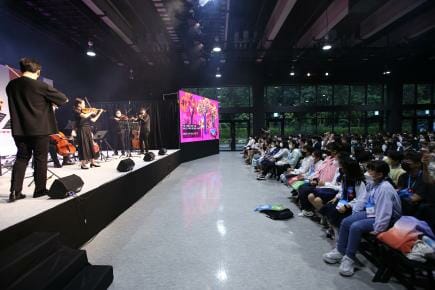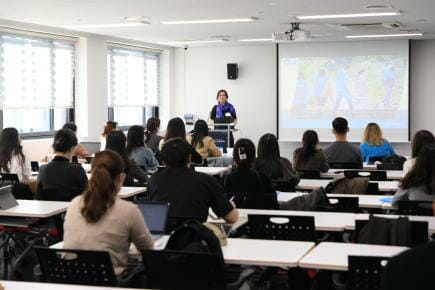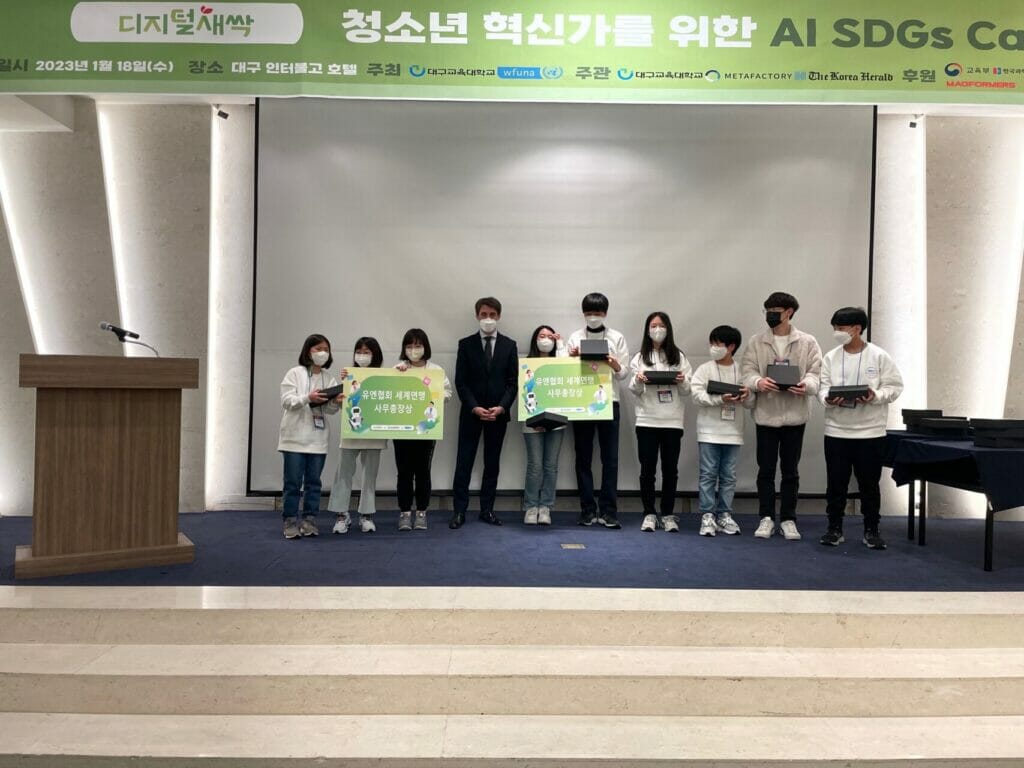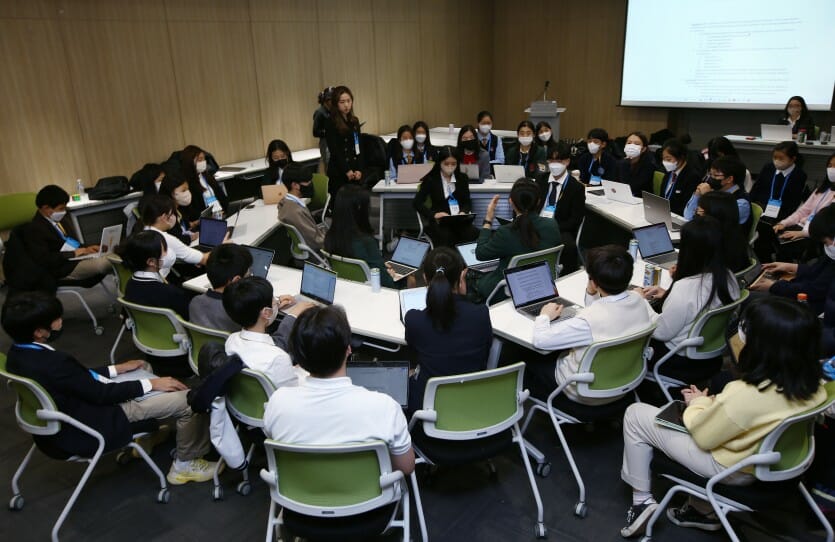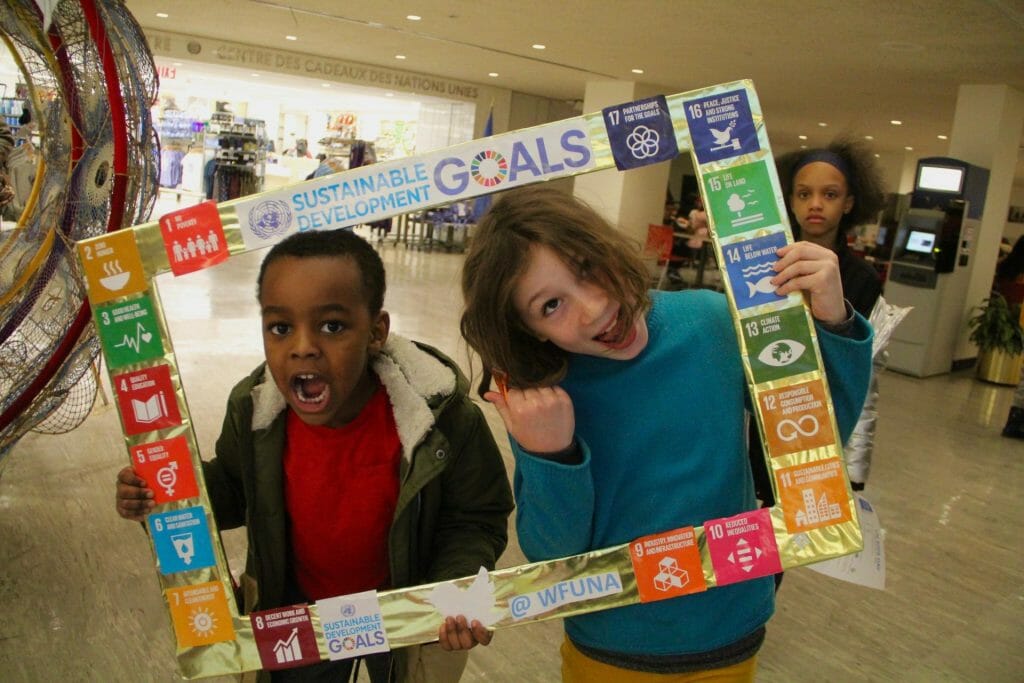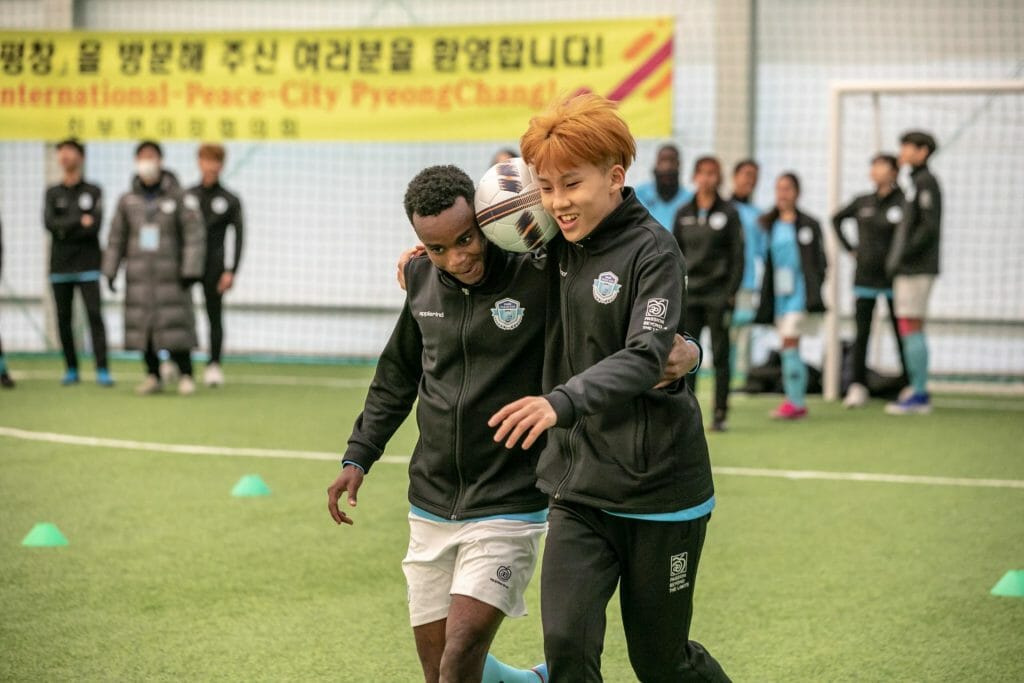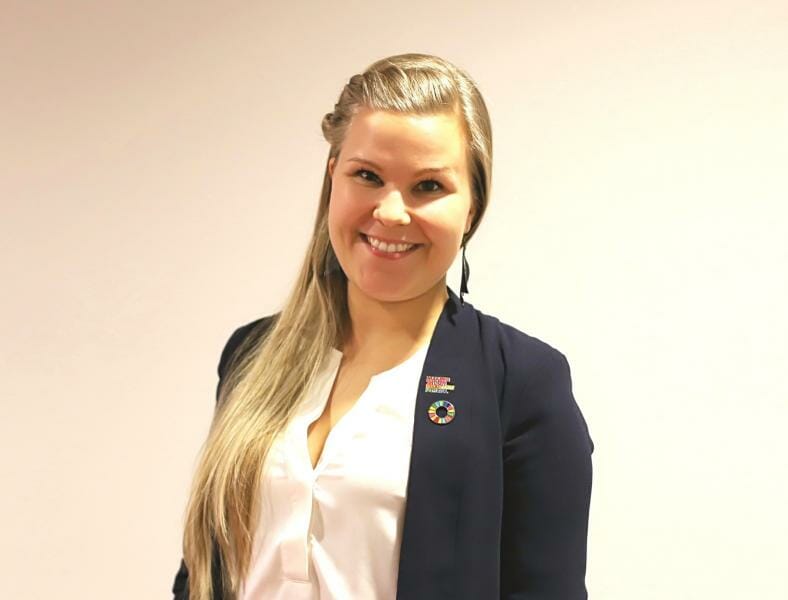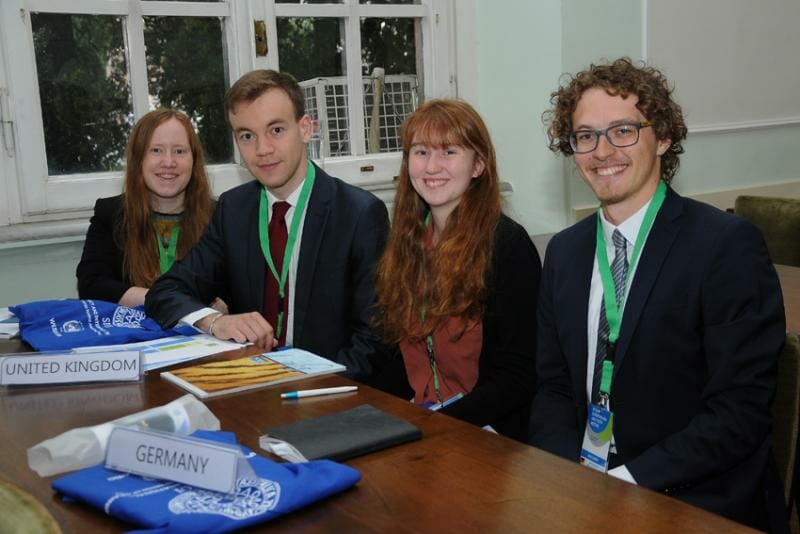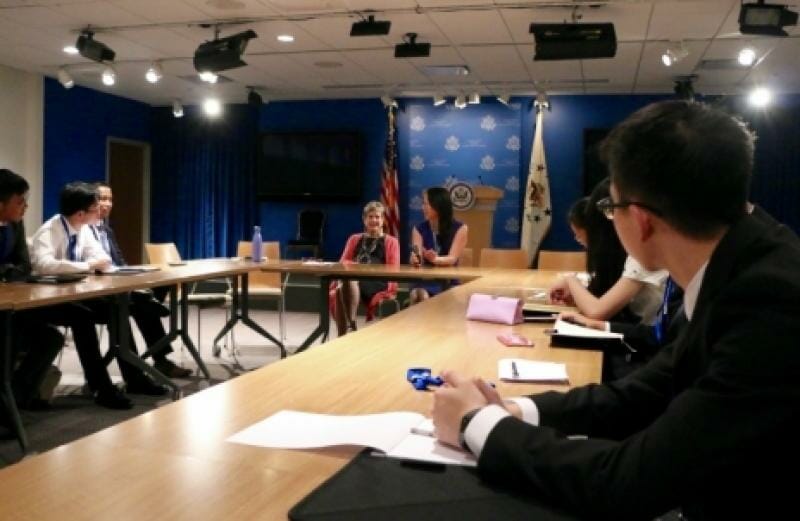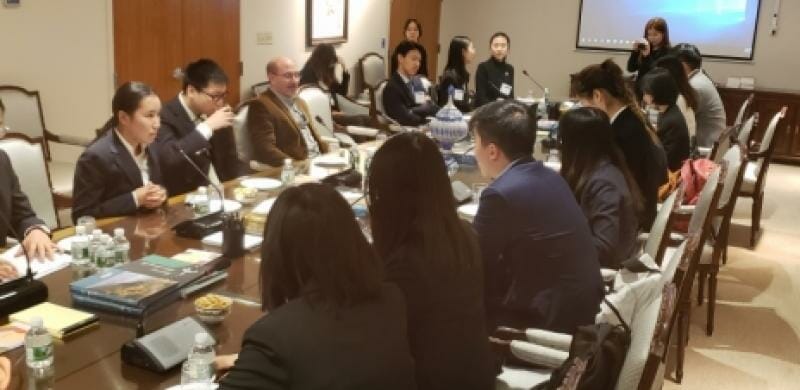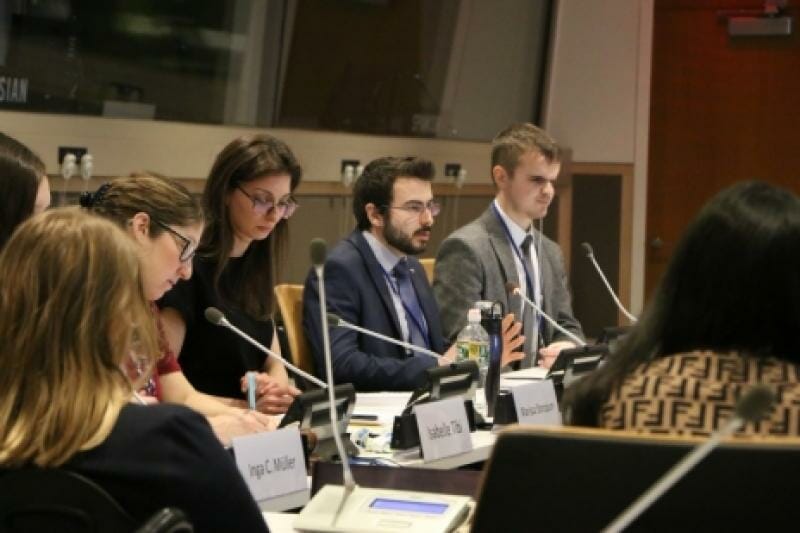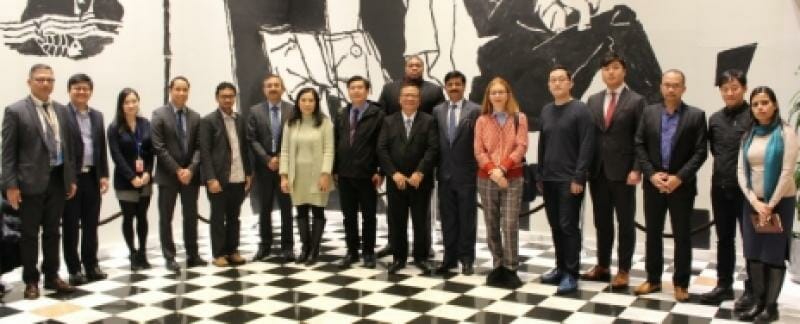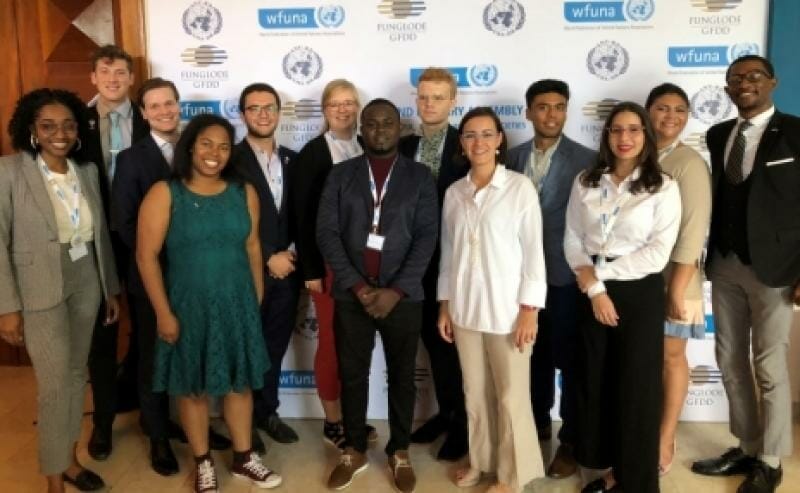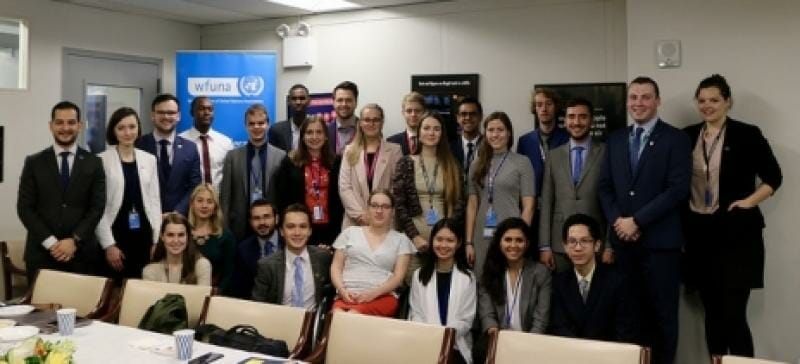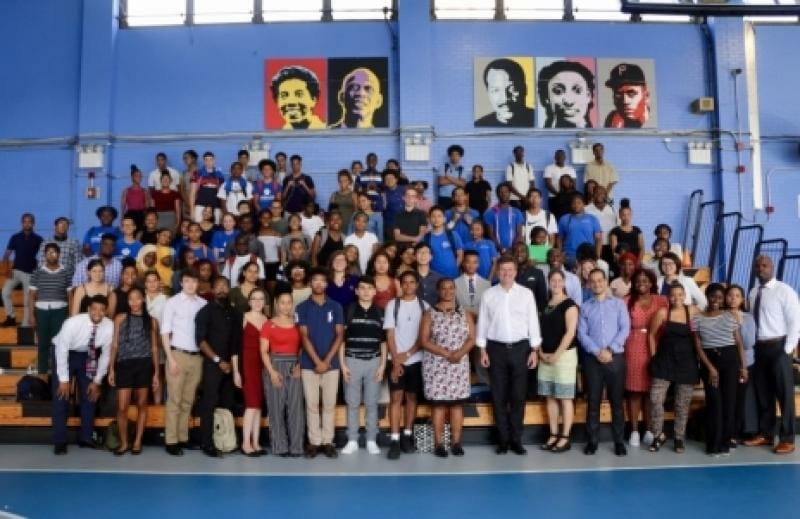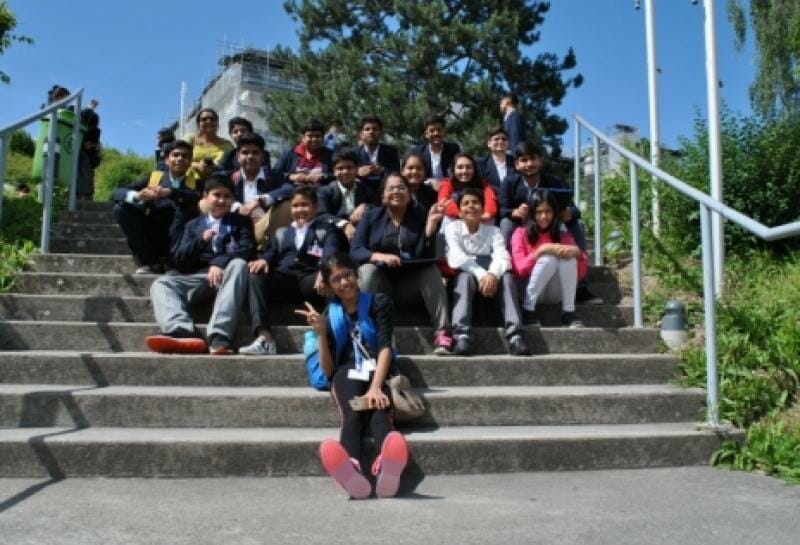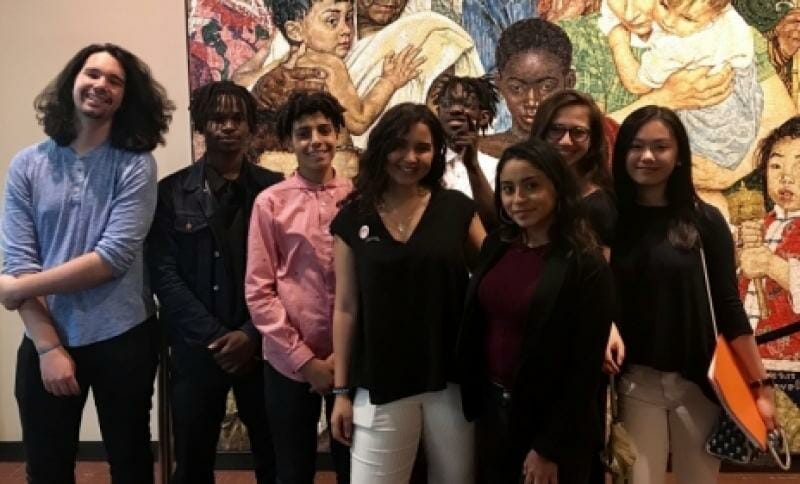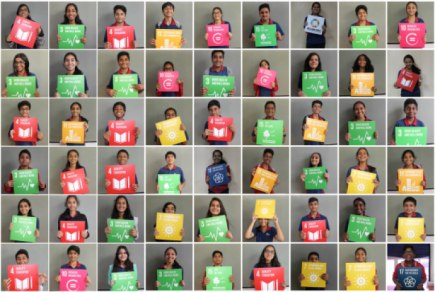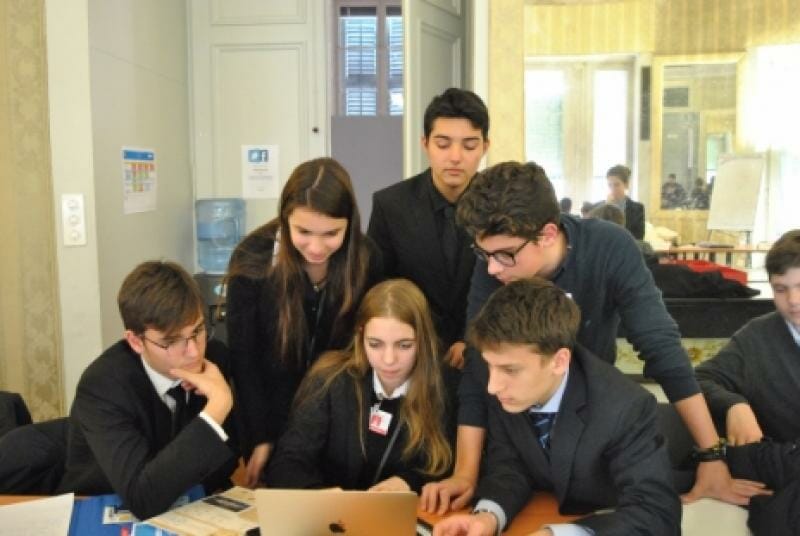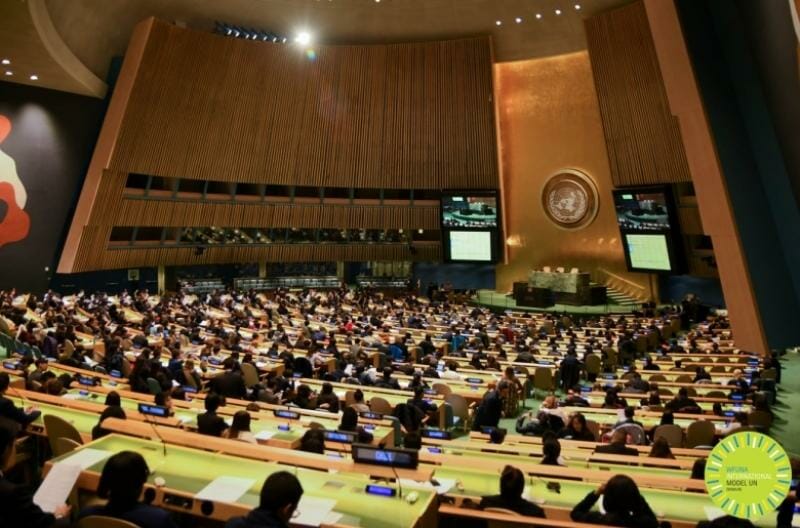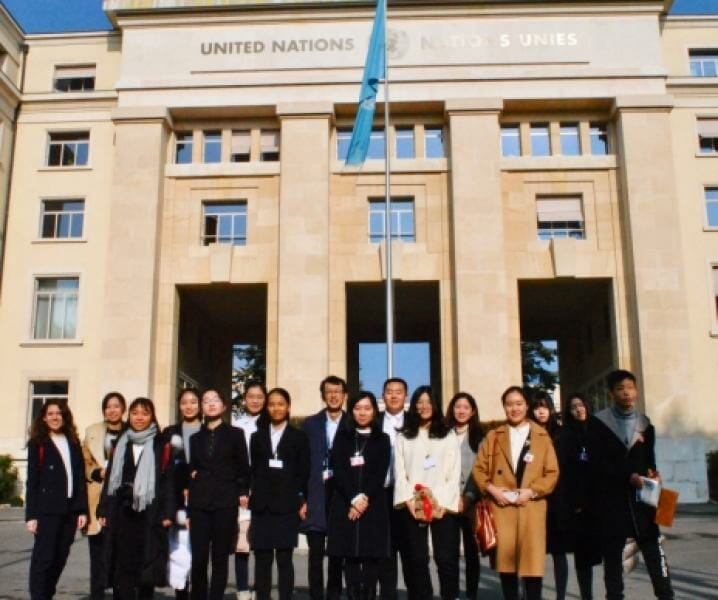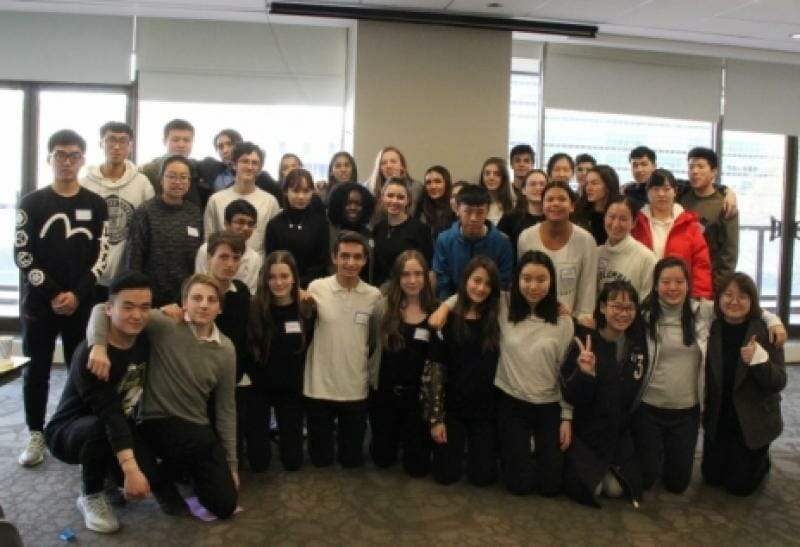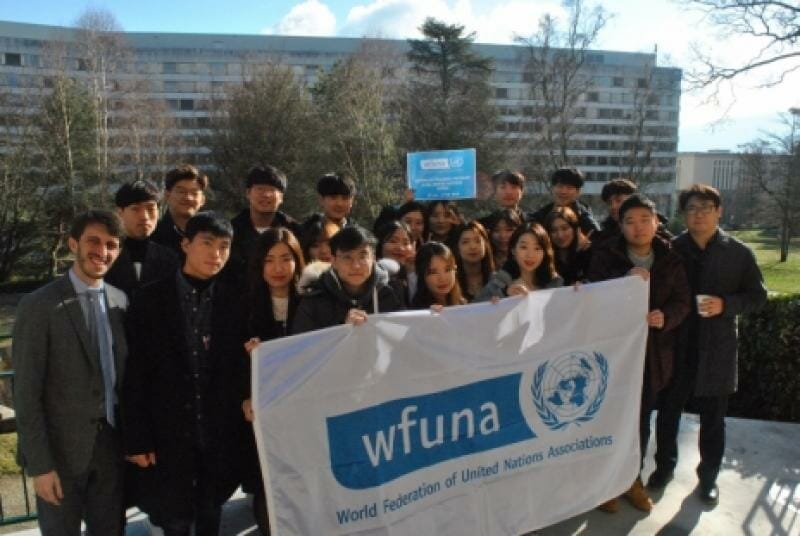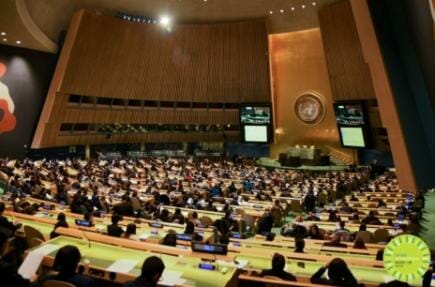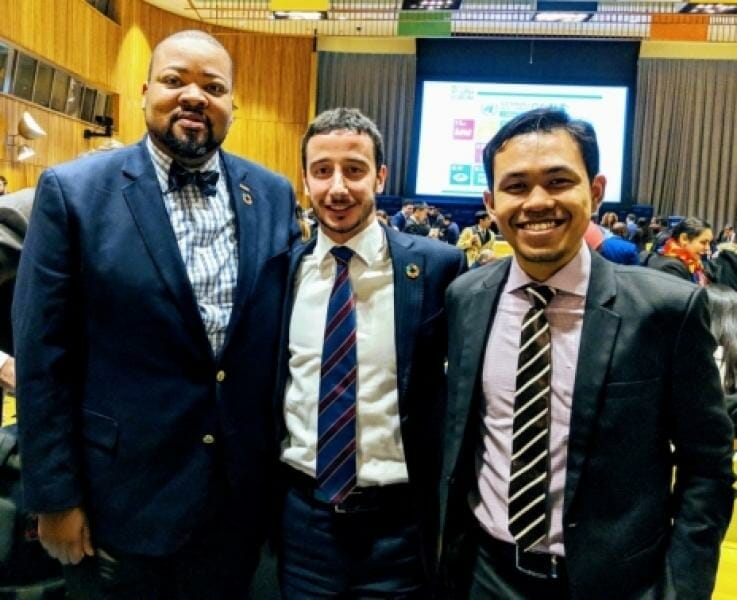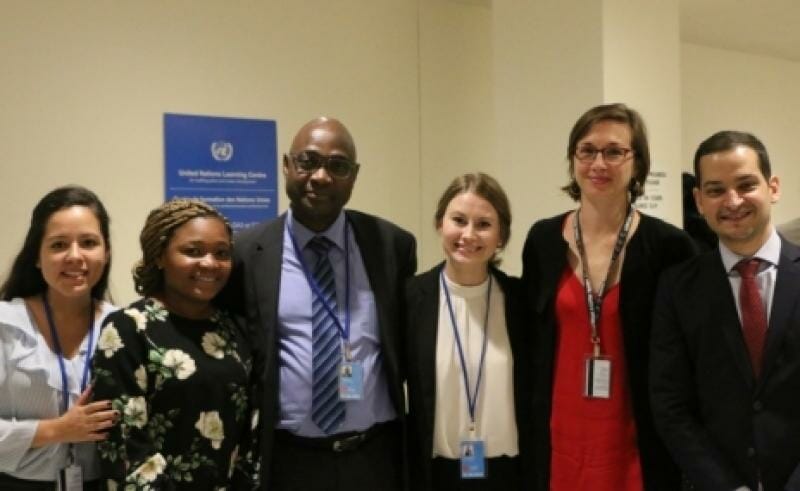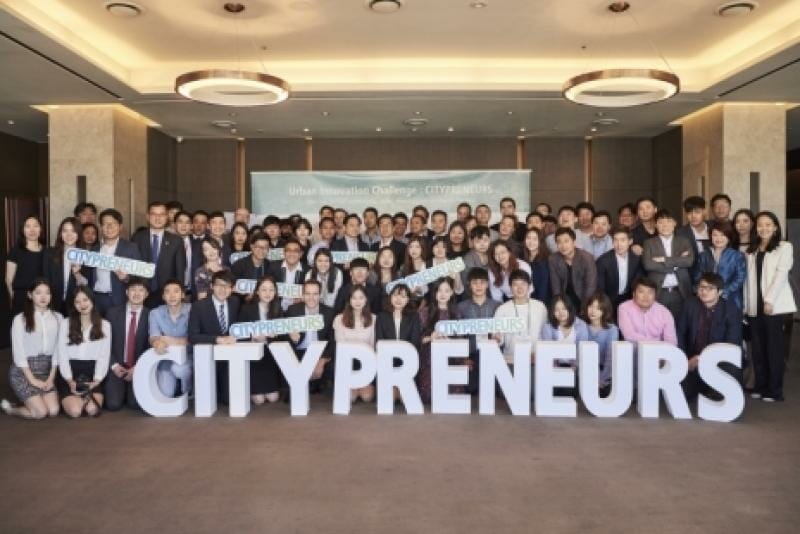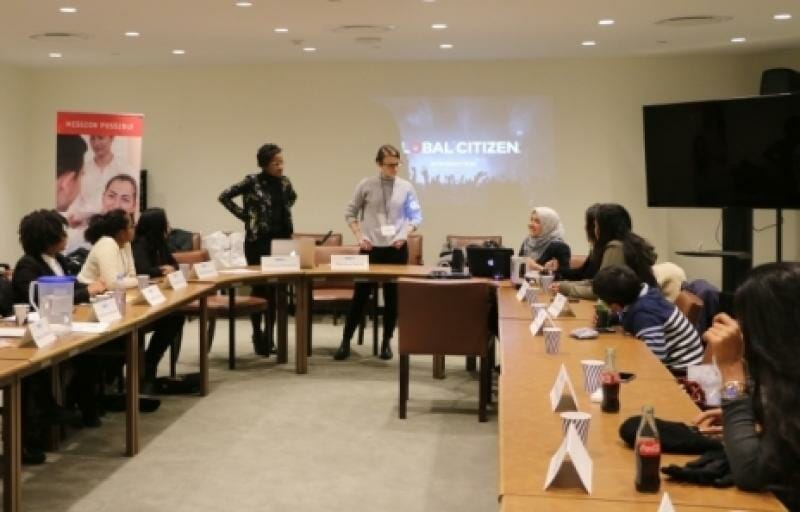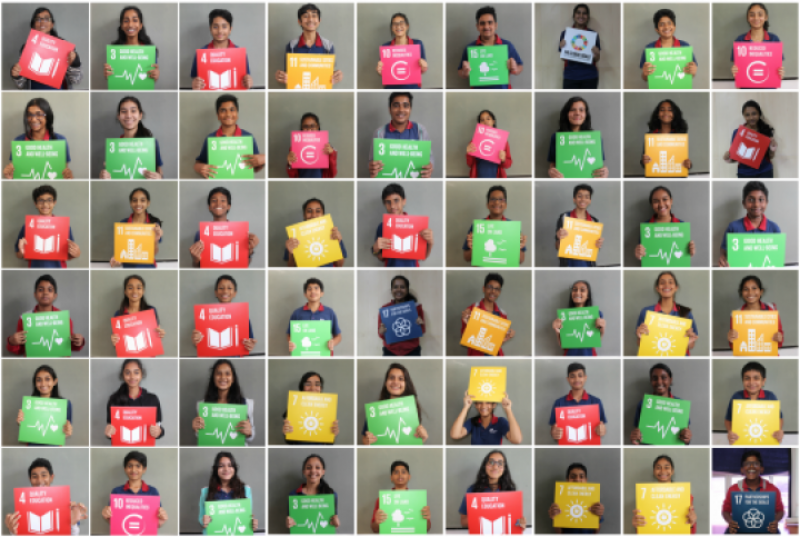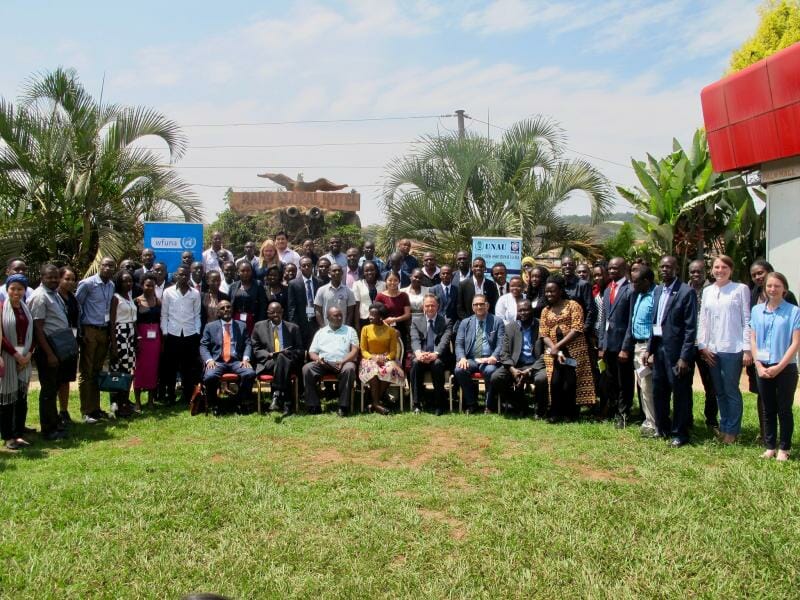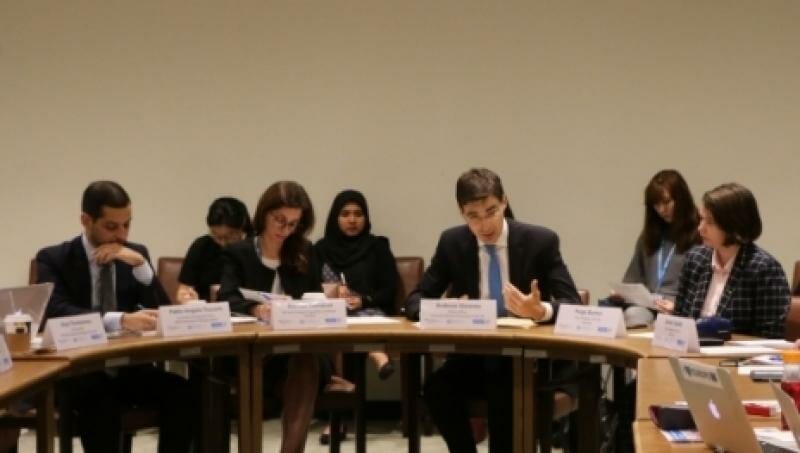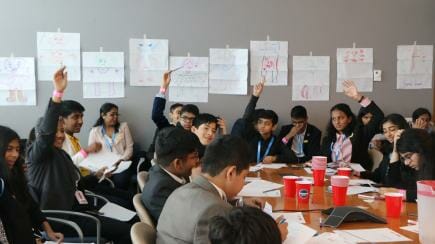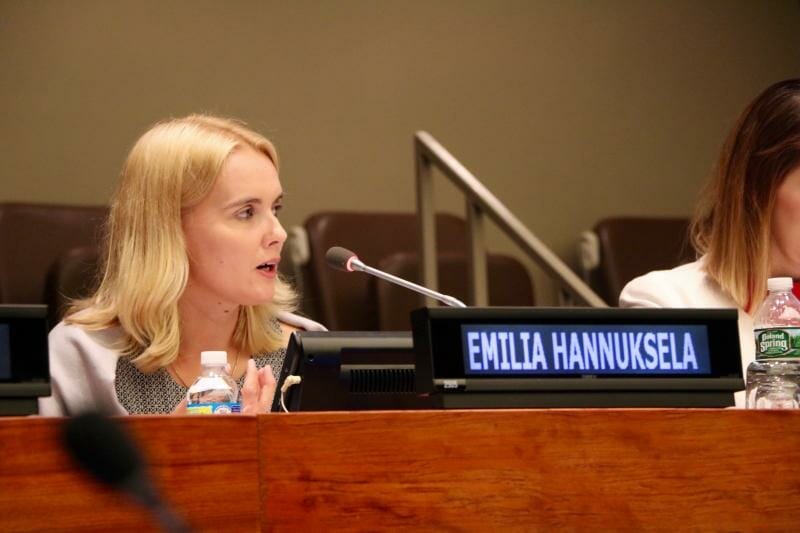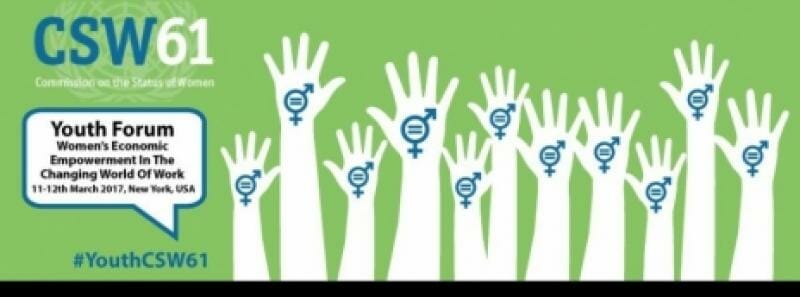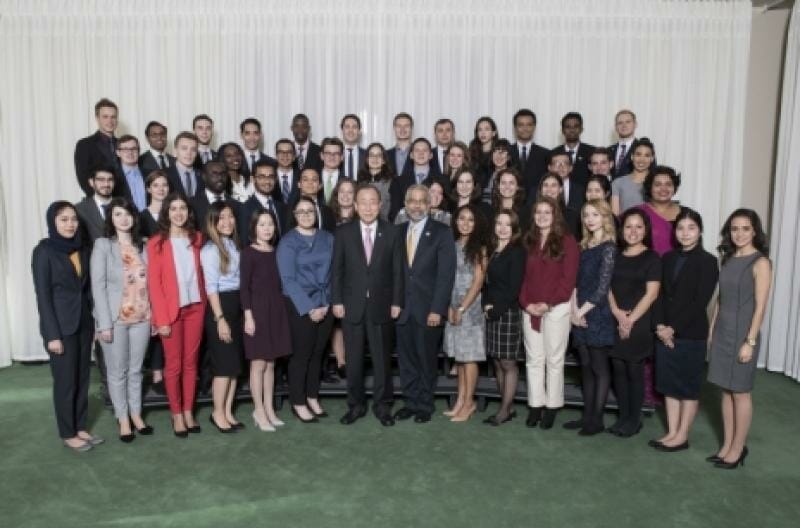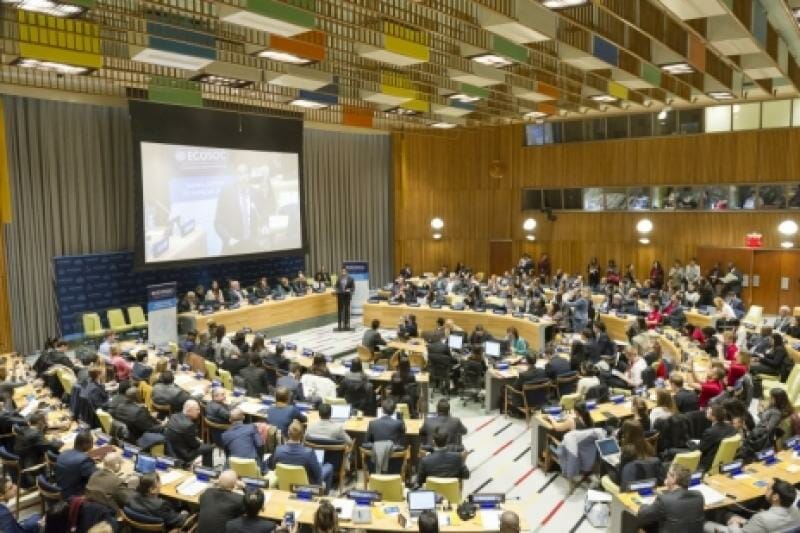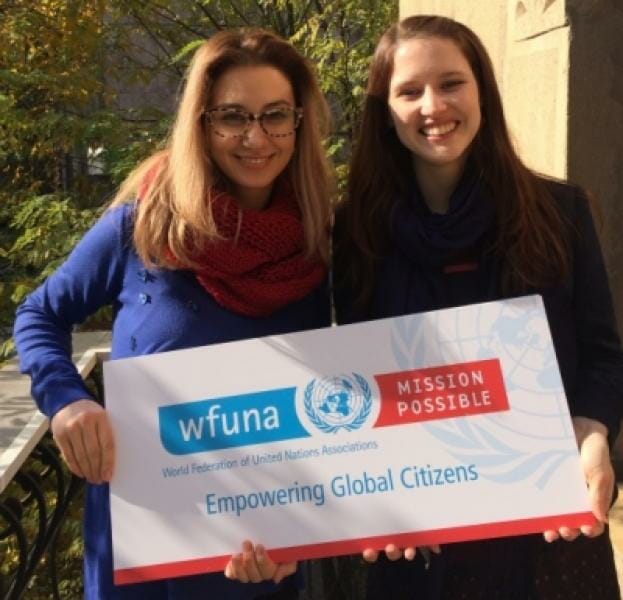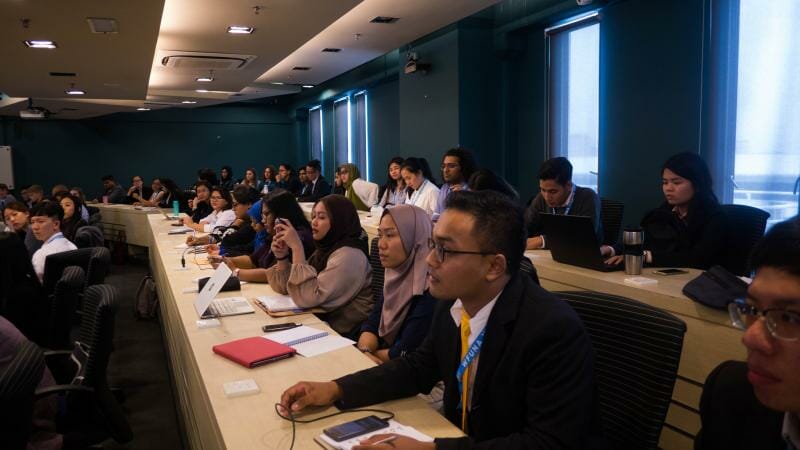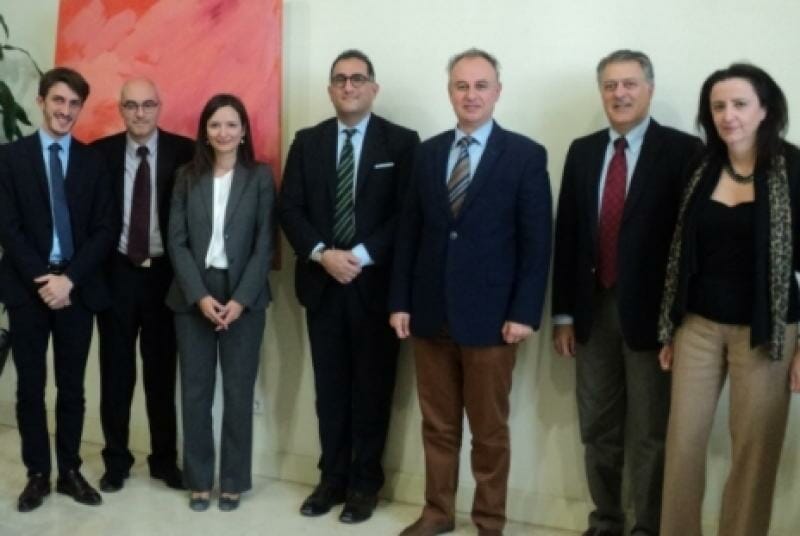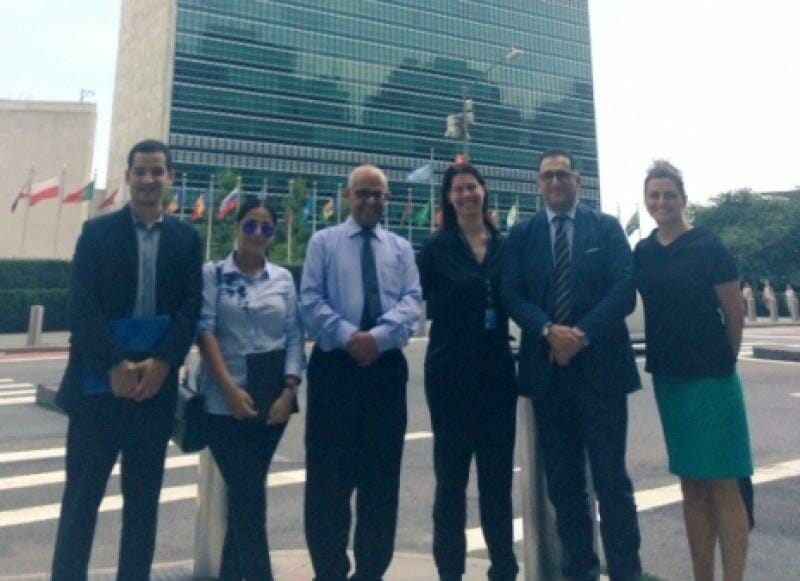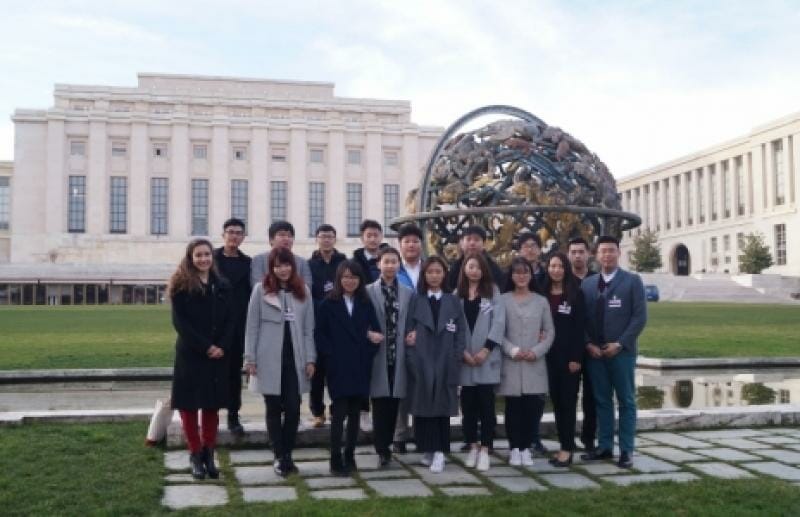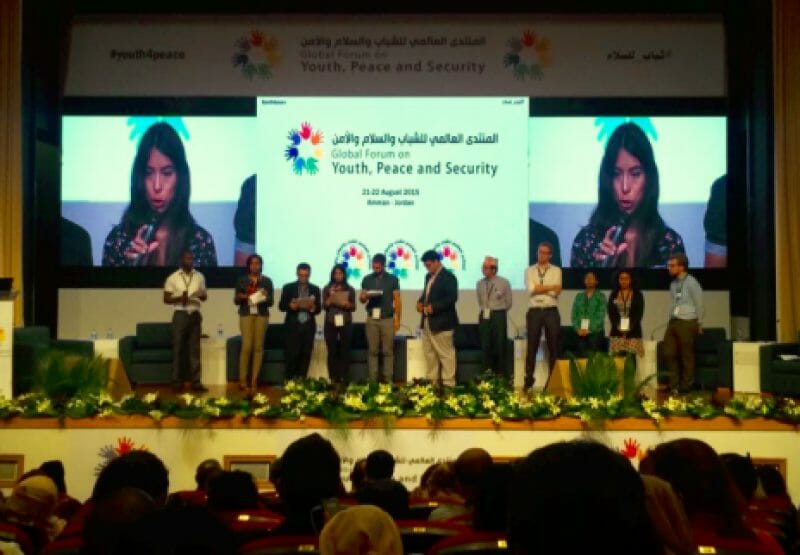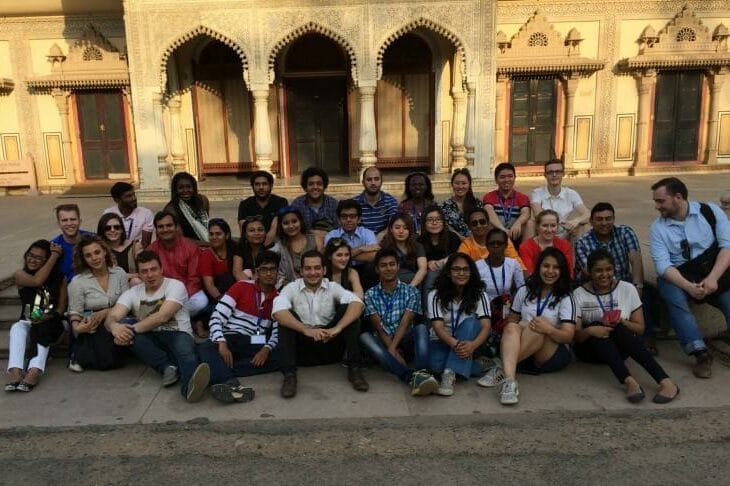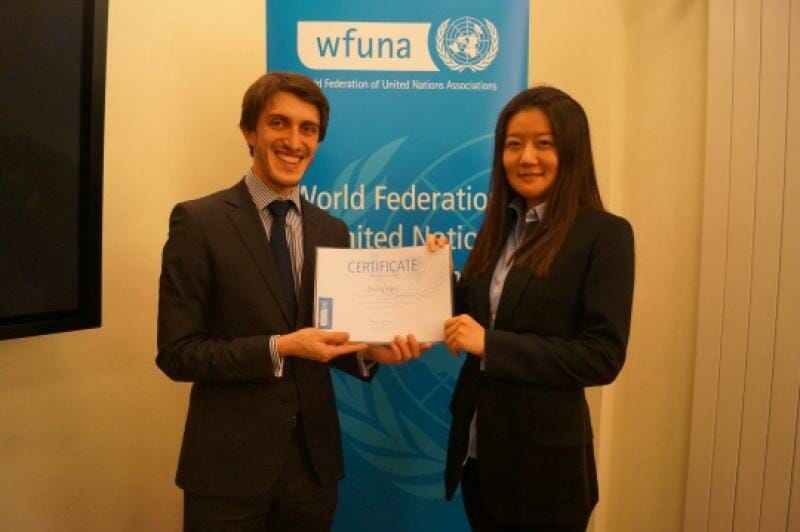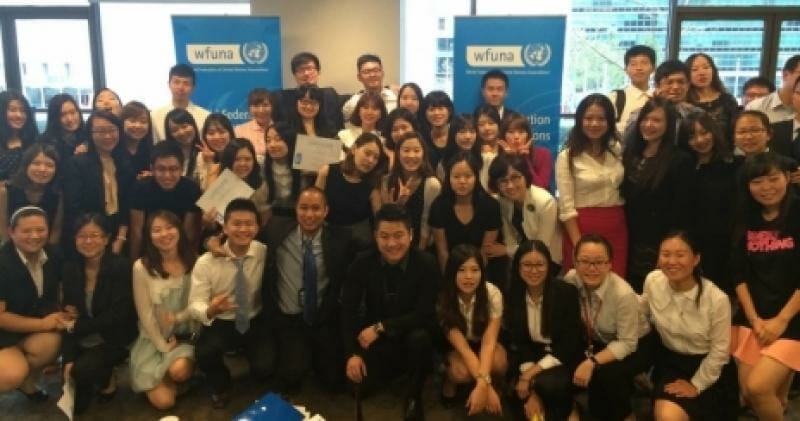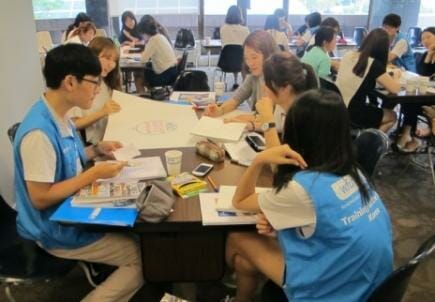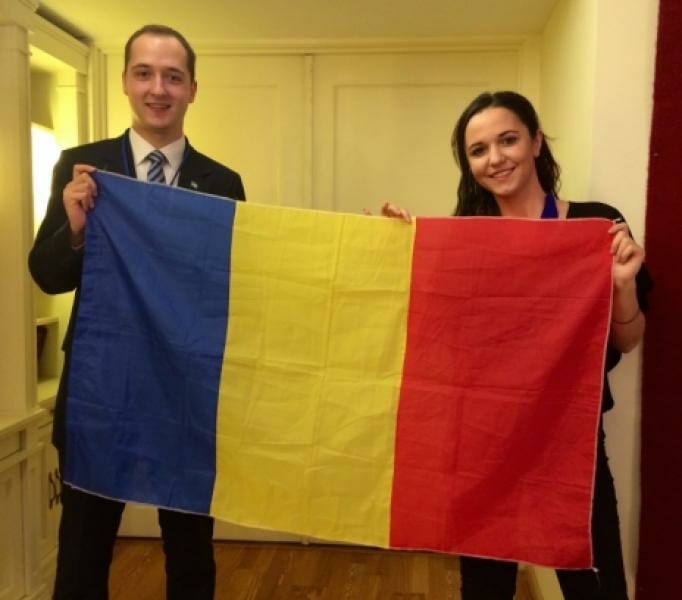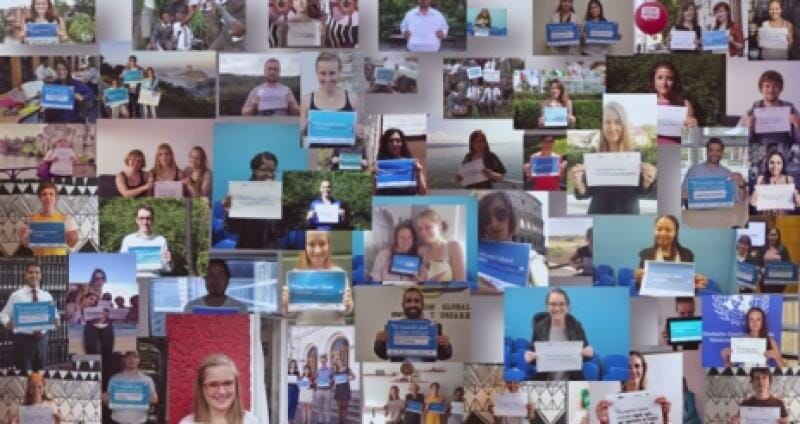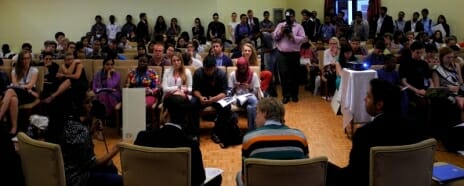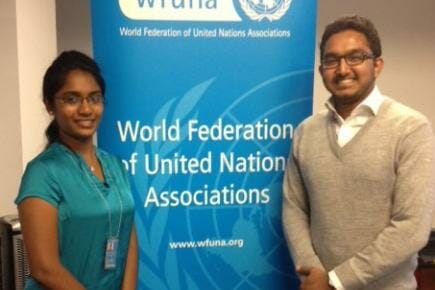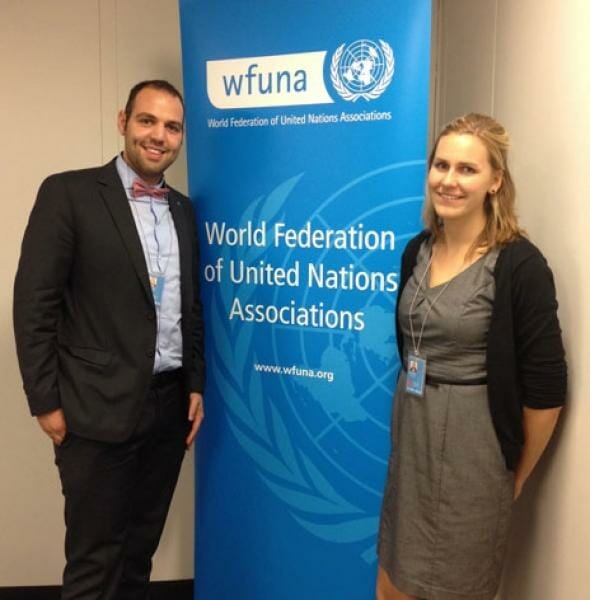WFUNA is pleased to announce that Maisy Bentley of UNA New Zealand was selected as the WFUNA Young Leader of the Year 2021.
After a competitive selection process, Maisy was chosen for her outstanding contribution to her UNA, her active participation in efforts to overcome the COVID-19 pandemic and finding creative and innovative solutions to continue implementing youth programs amidst challenges posed by COVID-19.
Maisy is studying towards a Bachelor of Laws with Honours and Bachelor of Arts in International Development and Māori (indigenous) Studies. Maisy has significant achievements under her belt both academically and in practice, including being named “Outstanding Youth Champion” by New Zealand’s Minister for Youth, Thomson Reuters Top Student in Contract Law and Most Inspirational Young Person of the Year. Maisy has been involved in UNA NZ for a number of years first through UN Youth and then as the Executive Officer of UNA NZ for the last 3 years. With a focus on using her legal and academic skills for social good Maisy has worked in several government departments where she focused on women’s rights, participated in global policy making at the UN in New York, sat on various boards and contributed to academic research and publications including one that was delivered to the high-level political forum at the UN. Maisy often shares her knowledge and experience through speeches to conferences, schools, charity events, guest lectures and large corporates.
To learn more about Maisy’s work and her involvement with UNA New Zealand, you can read a short interview with her below:
How did you get involved with UNA-NZ? What advice would you to give to young people interested in connecting with the UN and/or a UN Association?
Maisy: “I first got involved with UNA NZ when I participated in the speech award in high school, I later participated in the National Model UN and was then selected to be part of the global development tour. Throughout the tour, I travelled to 6 countries and culminated in representing New Zealand at the International Youth Assembly at the UN. In the first few years of my university degree, I volunteered for the youth association including at the National Model UN. Three years ago, I applied for a job at UNA NZ and remain at the Association as the Executive Officer running our national office/operations.
The advice I would give to young people interested in connecting with the UN/UNA is to be open minded because opportunities do not always come from where you think they will. For example, we get many internship applications but have very few internship placements. However, we often have opportunities to volunteer on projects or join committees which provides just as valuable a learning experience. There are many amazing opportunities I have experienced through UNA NZ that I would never have conceived of resulting from the role such as delivering a guest lecture on the SDGs, supporting a UN endorsed art exhibition to mark the 75th anniversary of the UN or even winning this award!
Many people want to work with or for the UN and/or UN Associations, but your experience will be so much richer if you approach that goal with an open mind, looking to contribute, and develop your skills while creating a positive impact alongside good people.”
What has empowered and enabled you as a young person to remain active in UNA-NZ throughout a time when it may have been difficult to remain optimistic about the future?
Maisy: “It can be difficult to remain optimistic about the future as a young person. However, the pressing issues of global challenges today can serve as motivation.
I find that I am empowered and enabled when I look for innovative and positive ways to respond to these challenges. Although Covid-19 posed many challenges, an opportunity that opened up for us is the international meetings and events being hosted online meant they were far more accessible when people did not have the time and cost burden of traveling. I saw this as an opportunity to provide young women with the educational and career changing opportunity of attending CSW65. This allowed me to feel a sense of pride, positivity and empowerment to have even a small positive difference in the face of these challenges.”
In what ways have you promoted and enabled youth voices during the COVID-19 Pandemic?
Maisy: “The main way that I have promoted and enabled youth voice during the pandemic is through committing extra time and energy to pivot our youth programs and ensure they can still run. In doing so, it helped demonstrate how young people can positively contribute to the Covid-19 response.
This included our speech award which has been running for over 35 years, previous finalists include Prime Minister Hon Jacinda Ardern, MPs, Commissioners, diplomats and more. The speech award was a key factor in encouraging me to understand international public law and sparked my involvement with UNA NZ. This helped me see first-hand the positive impact it can have.
This also included pivoting our internship programme which previously relied on international students to an online/hybrid programme with domestic students. The programme has given valuable work experience and mentoring to young people which has assisted them in securing employment.
An experience I am most proud of is the Commission on the Status of Women (CSW65). The CSW65 was the global policy-making body on women’s rights which was held virtually in 2021 due to Covid-19. Although this meant that people across the world could not gather in New York and that there were not as many opportunities for dialogue and lobbying, the event was far more accessible to young people who now did not face the burden of traveling to New York. I saw this as an opportunity to give young women the impressive career opportunity of participating in CSW and ensuring more youth voices were heard both at the Commission and the side event run by the New Zealand government.”
Can you share a moment of inspiration or unity among youth organizers that has driven you to remain so involved in UNA-NZ?
Maisy: “Moments of inspiration that drive me to stay involved in UNA NZ and to progress the work I do are not singular or extravagant. Instead, they are the small moments where I see what I have done like have a positive impact on a young person and knowing that they will then continue to create a further positive impact on the world. Some examples of this throughout Covid-19 include helping an intern prepare for a job interview and hearing they got the job, chatting to other young women who feel more welcome in the organisation because of the incremental positive changes I have made and reading the reflections of the young women we sent to CSW knowing that it further equipped them in their efforts to tackle gender inequality.”
Which youth populations have been most affected by the pandemic in New Zealand, and how has your work with UNA-NZ impacted these communities?
Maisy: “Covid-19 highlighted existing inequalities. For example, Māori, pacific, disabled and LGBTQI+ young people were more effected by unemployment, financial insecurity, educational disruption and mental wellbeing impacts of Covid-19. In response, the government and social services sector rolled out strong public health measures that were supported by economic and welfare measures.
UNA NZ is focused on civil society representation, facilitating engagement with the UN and promoting understanding of the UN, it does so in the following ways:
- Civil society representation including engaging in UN delegation visits or for example the Auditor-General’s report on the SGDs.
- Facilitating engagement with the UN through a range of programs including our public facing office and connection to regional UN offices.
- Promoting understanding of the UN through a range of youth programs, research activities and events, lecture series and talks to educate the public and allow them to engage with Ministers, diplomats and officials.
We were not on the front lines of responding to Covid-19, however, through our broader programme of work including progressing the SDGs and promoting a stronger UN, we are working to address many of the underlying problems that exacerbate inequalities. Our youth programmes provide opportunity for young people of all backgrounds. Because of this, it was important to me to ensure our programmes kept running especially when so much of students’ education and associated opportunities were already disrupted.”
Do you feel the need for international law or global governance was highlighted in the midst of a global pandemic? In what areas do you see the most need of growth?
Maisy: “Covid-19 highlighted the need for international law and global governance in a number of ways.
Early in the pandemic governments around the world imposed strict measures on citizens to control the virus, international law provides human rights frameworks and accountability mechanisms to ensure that these strict measures are demonstrably justified. As a result of lockdowns, the use of digital platforms increased and so did misinformation. A global problem that needs a global human rights-based solution. At the same time, border restrictions and restrictions on the movement of people highlighted the need for strong international norms and the protection of citizenship rights. Once a vaccination was available it needed to be equitably distributed among nations, requiring global cooperation. Today, ongoing supply chain disruptions highlight the need for global cooperation and strong international law in regard to sea and air freight. These are just a few examples that highlight the need for international law and global governance at different stages of the pandemic.
As the world continues to face global challenges of which the pandemic is just one the need for international law, global governance and strong international rules-based order are just as important as when the United Nations was founded. As we face these new challenges we need a renewed commitment to our international institutions. We need them and the nations who constitute them to be agile and innovative because I believe investing in our international institutions to ensure they are fit for the 21st century is an area that needs particular attention.”
Interview by Lindsey di Silvestri. Edited by Elizabeth Aguilar.


